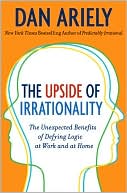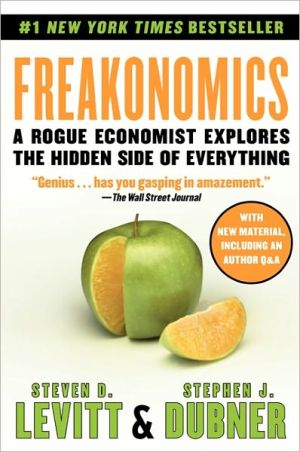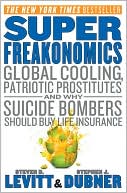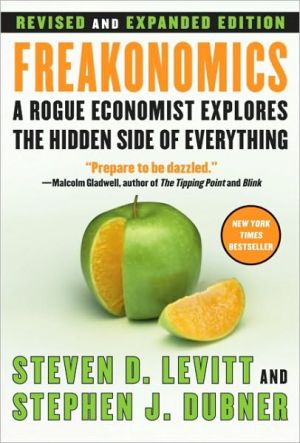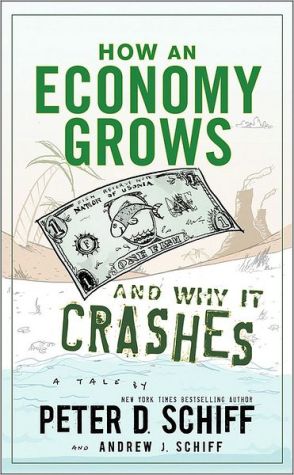The Upside of Irrationality: The Unexpected Benefits of Defying Logic at Work and at Home
Search in google:
The provocative follow-up to the New York Times bestseller Predictably Irrational Why can large bonuses make CEOs less productive? How can confusing directions actually help us? Why is revenge so important to us? Why is there such a big difference between what we think will make us happy and what really makes us happy? In his groundbreaking book Predictably Irrational, social scientist Dan Ariely revealed the multiple biases that lead us into making unwise decisions. Now, in The Upside of Irrationality, he exposes the surprising negative and positive effects irrationality can have on our lives. Focusing on our behaviors at work and in relationships, he offers new insights and eye-opening truths about what really motivates us on the job, how one unwise action can become a long-term habit, how we learn to love the ones we're with, and more. Drawing on the same experimental methods that made Predictably Irrational one of the most talked-about bestsellers of the past few years, Ariely uses data from his own original and entertaining experiments to draw arresting conclusions about how and why we behave the way we do. From our office attitudes, to our romantic relationships, to our search for purpose in life, Ariely explains how to break through our negative patterns of thought and behavior to make better decisions. The Upside of Irrationality will change the way we see ourselves at work and at home and cast our irrational behaviors in a more nuanced light. The New York Times - Kyla Dunn As in his previous book, the best-selling Predictably Irrational, the experiments Ariely describes generate entertaining and often counterintuitive insights…deciding how to apply [these] insights is a pleasure that lingers long after the book is finished.
Introduction Lessons from Procrastination and Medical Side Effects 1Hepatitis and procrastinationThe movie treatmentWhat we should do and behavioral economicsFrom food to incompatible designTaking irrationality into accountPart I THE UNEXPECTED WAYS WE DEFY LOGIC AT WORKChapter 1 Paying More for Less: Why Big Bonuses Don't Always Work 17Of mice and men, or how high stakes affect rats and bankersMeasuring the effects of a CEO-sized bonus in IndiaLoss aversion: why bonuses aren't really bonusesWorking under stress: just how clutch are "clutch" NBA players?Stage fright and the social side of high stakesMaking compensation work for societyChapter 2 The Meaning of Labor: What Legos Can Teach Us about the Joy of Work 53You are what you do: identity and laborThe pains of wasted workLessons from a parrot---and some hungry ratsSearching for meaning while playing with LegosMaking work matter againChapter 3 The IKEA Effect: Why We Overvalue What We Make 83Why IKEA makes us blush (with pride)Cooking lessons: finding a balance between just adding water and baking an apple pie from scratchThe real value of a thousand origami cranes (and frogs)Customize it!Why "almost done" doesn't do much for usWhy we need labors of loveChapter 4 The Not-Invented-Here Bias: Why "My" Ideas Are Better than "Yours" 107Mark Twain describes a universal form of stupidity"Anything you can do I can do better": why we favor our own ideasThe toothbrush theoryWhat we can learn from Edison's mistake 7Chapter 5 The Case for Revenge: What Makes Us Seek Justice? 123The joys of paybackThe bailouts and pounds of fleshOne man's quest for revenge against AudiThe etiquette of revengeCompanies beware: when consumers go publicUses and misuses of revengeMaking amendsPart II THE UNEXPECTED WAYS WE DEFY LOGIC AT HOMEChapter 6 On Adaptation: Why We Get Used to Things (but Not All Things, and Not Always) 157Frogs: to boil or not to boil?Adapting to visual cues and pain thresholdsHedonic adaptation: from houses to spouses and beyondHow the hedonic treadmill keeps us buying---and buying moreHow we can break and enhance adaptationMaking our adaptability work for usChapter 7 Hot or Not? Adaptation, Assortative Mating, and the Beauty Market 191A personal adaptationWhen mind and body don't get alongSticking to our own (more or less hot) kind in dating: do we settle or adapt?Let's ask the Internet: dating sites and romantic criteriaHow I met your motherChapter 8 When a Market Fails: An Example from Online Dating 213The function of the yentaThe dysfunctional singles market (as if you didn't already know)The difference between your date and a digital cameraAn exemplary failure in datingHow dating sites skew our perceptionsIdeas for a better dating futureChapter 9 On Empathy and Emotion: Why We Respond to One Person Who Needs Help but Not to Many 237Baby Jessica versus the Rwandan genocideThe difference between an individual and a statisticIdentification: needed for more than buying beerHow the American Cancer Society reels us inThe effect of rational thinking on givingOvercoming our inability to confront big problemsChapter 10 The Long-Term Effects of Short-Term Emotions: Why We Shouldn't Act on Our Negative Feelings 257Don't tread on me: my colleague learns a lesson about rudenessThe dark side of impulsesDeciding under the influence (of emotions)The importance of "irrelevant" emotionsWhat a canoe can tell you about your love lifeChapter 11 Lessons from Our Irrationalities: Why We Need to Test Everything 281A decision about life and limbGideon's biblical empiricismThe wisdom of leechesLessons learned, hopefullyThanks 297List of Collaborators 299Notes 305Bibliography and Additional Readings 307Index 319
